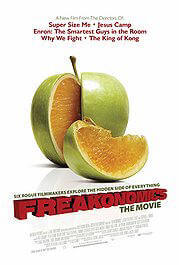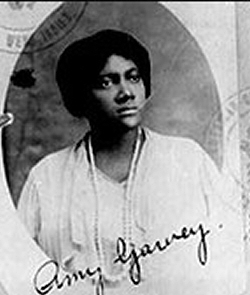I had last seen my country one afternoon back in January, when I was evacuated four days after the earthquake. Returning last month for a four-week trip, I was afraid to see what I would find.
A soft rain greeted me when I stepped off the plane, as if to wash away my anxiety. So did the energizing rhythm of a calypso band playing under a nearby canopy. Dancing post-earthquake, I thought, had to be indecent. Instead I rocked slightly to the beat, smiled at one musician and put some dollars in his hat. The airport had been partly destroyed, and there was no air-conditioning at baggage claim, but I was happy to be home.
The traffic jam on the way to my house was an opportunity to slowly take in the changed neighborhoods, the camps, the rubble. I saw that the giant Caribbean supermarket I’d shopped at many times had collapsed and the small church of Ste. Thérèse, where I had attended funerals and weddings, was gone.
But above the devastation, I was surprised to see billboards advertising concerts by Haiti’s best-known musicians, like T-Vice, Carimi and Tropicana. Perhaps, I realized, dancing wasn’t entirely out of the question. Several musicians have already written songs about the quake. Many people sing along to this one: “Under the tarps, you are being ignored/ Tents and sheets, they don’t want to see you./ Fissured homes are being ignored.”
In many ways, Haitian art and folklore have begun to incorporate the earthquake that leveled Port-au-Prince as well as Jacmel, Petit-Goâve and Léogâne. In the art market of Pétionville, the hilly suburb that has become the de facto center of the capital since the earthquake reduced the city’s main square and shopping district to rubble, paintings of destruction scenes are for sale. They go for $50 to $400, depending on whether the buyer is foreign or Haitian and whether he knows how to bargain.
Haitians have even invented their own name for the earthquake: “Goudou Goudou.” It’s an onomatopoeia; when the earth shook, the rumbling sounded something like that.
But most of all, the earthquake has become the main theme of Haitian storytelling. I spent the month visiting friends, and all were eager to tell me about Goudou Goudou. All needed to say where they were when it happened, and what they had lost by the time it ended. Telling their stories was a way to affirm that they were still among the living, and not among the dead.
•
Joe, an architect, lost his house, his aunt and uncle, and an overflowing file of drawings. He is lucky because he was able to move in with a sister.
Évelyne also lost her home but went back the next day to search the rubble and found her passport and her cat.
Pat lost both his parents and his family home, and Nono lost his bakery.
Danielle slept in a tent in the parking lot of her office building for six months.
Émile sleeps with his family in a tent in his backyard; they can still use the kitchen in their damaged house. He joked that their tent was as opulent as that used by the president of Libya, Muammar el-Qaddafi.
Most cannot afford to rebuild, and even if they had the money, many are too traumatized to begin.
Pat complains that his hands have been shaking uncontrollably ever since the earthquake.
Marie told me about her cousin, who still cannot sleep in a regular bed. He had a home office, and when the earthquake hit, the office collapsed. His beloved secretary of 30 years was buried inside. He moved in with Marie, and every night since, he has put down a mattress in her kitchen to sleep. At first, her family laughed, but it has now been nearly nine months and the laughter has stopped. He is a grown man, a 60-year-old, and they are worried. She asked: What will it take for him to rebuild his confidence, his life, his business?
Some people want to talk about what they can’t remember: Amnesia after severe shock is common. I had lunch with one friend just a few hours before the earthquake, and she didn’t remember a thing about the meal.
Another had amnesia for several weeks after the quake. The last thing she could remember was the co-worker sitting to her right at a meeting dying instantly, and the man on her left, who survived, yelling, “Don’t leave me, don’t leave me.” Nothing else, not even that she walked nearly eight miles home from her office in high heels and a disheveled dress with her face decorated with mortar from the crumbling walls.
•
After all this talk, I felt I needed to get out and see some familiar sights. The Rex Theater, where I saw concerts, plays and movies as a child, was still standing, but there were cracks all up and down its gray walls. Fanal, my favorite crafts store, was gone. The Sacré-Coeur church, where I had my first communion, was mostly destroyed, but the cross stood defiantly in the ruins.
The country I knew has collapsed and a new one is growing in its place. On the outskirts of Port-au-Prince, a huge provisional city called Canaan is being constructed and populated. Wood poles hold up walls and roofs of blue tarpaulins. Some of the structures even have traditional terraces in front, like real houses. How provisional is this, I wondered? Will it become another slum like La Saline or Cité Soleil? How long will people stay?
Then there are the tents — in the middle of residential streets, in soccer fields and parks, on the prime minister’s lawn. Some tent cities have restaurants, brothels, bars, beauty salons. Some offer medical clinics, latrines, water distribution, post-trauma counseling sessions. My friend Jeanine pointed out that, for many of the residents, it is the first time that they have ever had access to such services. I wondered if they might start to expect these things, to realize they have a right to shelter, medicine, sanitation and education, and that it is the government’s obligation to provide them.
This is not to say that it is possible to find much good in those living conditions. The torrential rains are a menace, particularly when they come with strong winds that rip open the tents. Violence — including sexual violence — is an ever-present threat.
A woman I know, Solène, told me she was attacked in her tent in the middle of the night by over 30 men and women with picks, guns, wooden planks and rocks. They had come with kerosene to burn her alive because she was accused of being a werewolf. A police unit rescued her; although her physical wounds healed in a month, she will never go back to her old neighborhood. The police weren’t much help: an officer said she really did look like a werewolf, and released the aggressors. She said she gets her energy and courage from God.
•
I wish I had that faith. Right after the earthquake, many people, myself included, said that this was Haiti’s chance, that we could use the momentum of this suffering and solidarity to propel the country into the 21st century, and finally rid ourselves of that humiliating epithet, “poorest country in the Western Hemisphere.” But after my month home, I am not so sure.
For all the vibrancy and resilience hidden under Haiti’s tents and tarps, the rebuilding — what my friends call the “refoundation” — has been slow. It is not hard to understand why.
Just before I returned to the United States, I went to see Bartho, a friend and former colleague who lost three of his five children. He explained to me how each died, how he could not see their bodies. “Why did this happen?” he asked, his body fidgeting wildly, his voice cracking. I didn’t know what to say; all I could do was listen. For my friend, as with Haiti, the pain of the disaster remains as palpable — and debilitating — as it was on that January day nearly nine months ago.

Monique Clesca is a novelist and a communication specialist for a development organization.
























a slight detour from your point: All I can glean today
Submitted September 30, 2010 - 7:03 pm by Dominic Corva (not verified)is the cover story for the police mobilization, described in some sources as the result of misinformation: a protest against planned cuts to salaries, benefits, and promotion timelines. The military brass very quickly and publicly came out on Correa's side. Correa miscalculated the response to his attempt to negotiate in person with the police forces, and got tear gassed as a result. None of this adds up, at the moment, to an actual coup attempt, other than references to manipulation by the oligarchy, and the public response by other Latam admins.
Things I would like to know:
At what point did this have any legs as a coup attempt?
And, what's the transnat constituency for a coup, besides Ecuador's historically way-less-brazen-than-Honduras oligarchy? Oil multinationals have been pretty happy with Correa.
Any directions to authentic journos in Quito would be greatly appreciated ...
And your actual point in this post -- that coupistas in the hemisphere can count on the US to at the very least let it happen thanks to Hillary -- is very well made and taken.